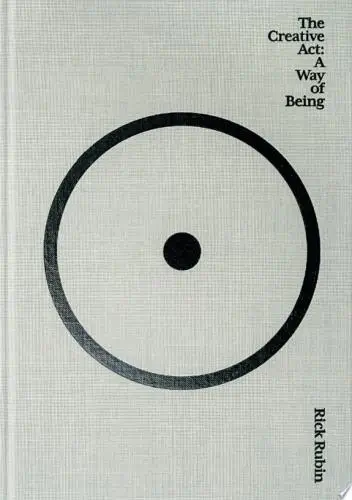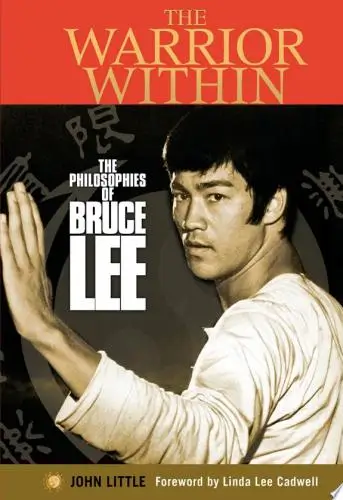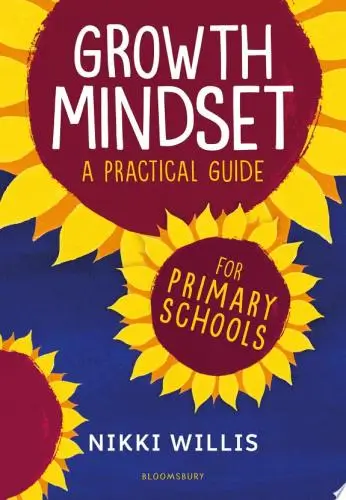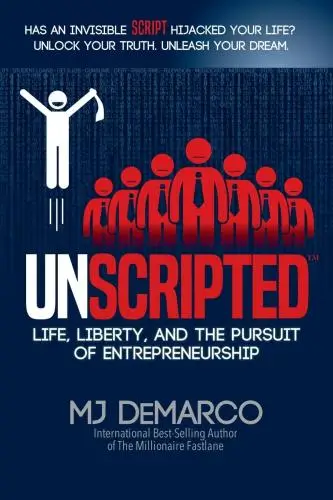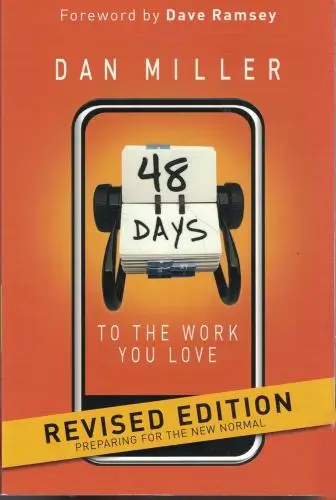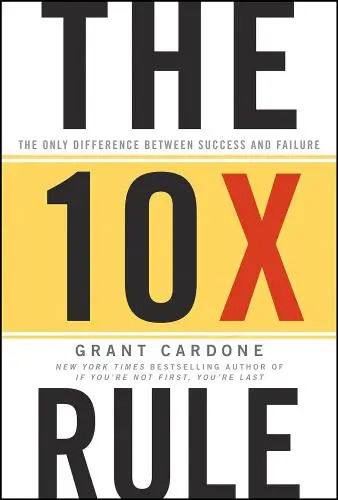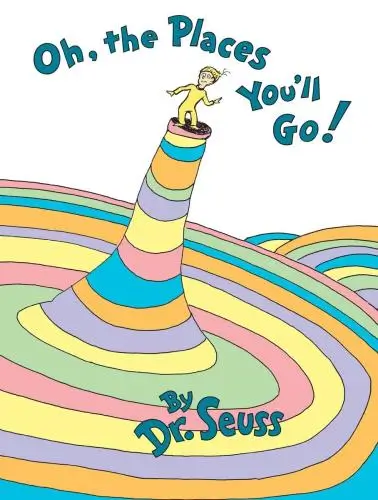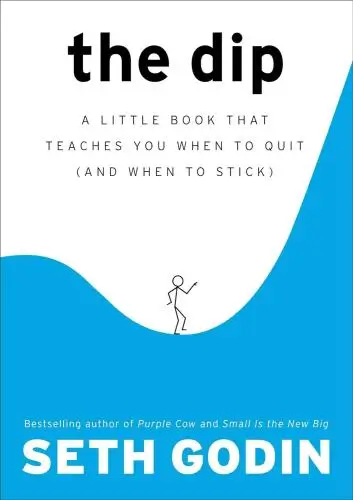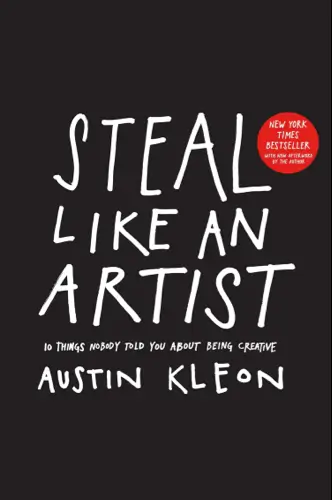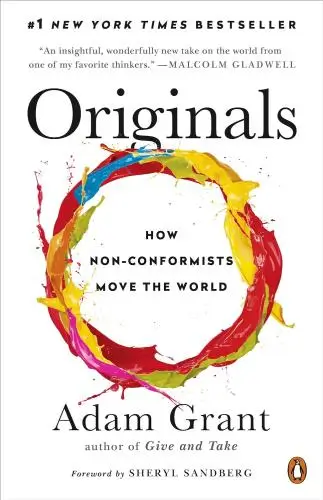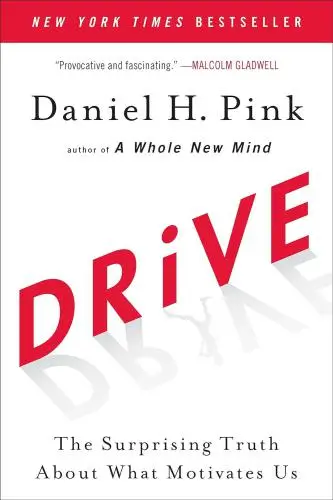
Drive
The Surprising Truth About What Motivates Us
What's it about?
Drive by Daniel H. Pink delves into the heart of motivation. Beyond traditional theories, Pink emphasizes intrinsic motivation – deriving joy from doing things that matter to us. He highlights autonomy, mastery, and purpose as key drivers. Through anecdotes, research, and advice, Pink masterfully explores how to tap into our inner motivation and unleash potential. A revolutionary read for leaders and individuals aiming for personal growth.
About the Author
Daniel H. Pink is an American author known for his books on business, work, and behavioral science. He has authored several bestsellers, including "Drive: The Surprising Truth About What Motivates Us" and "A Whole New Mind: Why Right-Brainers Will Rule the Future." Pink's books explore topics such as motivation, creativity, and the changing nature of work in the 21st century. He combines research from various fields to provide practical insights and strategies for individuals and organizations to thrive in today's rapidly evolving world. Pink's work has been influential in shaping the way people think about motivation, leadership, and personal development.
8 Key Ideas of Drive
- Rethinking Motivation: The Shift from Extrinsic to Intrinsic
- The Delicate Balance of Rewards
- The Evolution of Motivation Theories: From 2.0 to Self-Determination
- Autonomy: The Key to Workplace Success
- The Pursuit of Mastery
- The Power of Purpose
- Cultivating Intrinsic Motivation
- Redefining Compensation and Education
In 1996, economists were puzzled by the success of Wikipedia, a free encyclopedia driven by volunteers, while Microsoft's paid, professional-driven encyclopedia seemed destined for success. This defied conventional wisdom about motivation.
Our societal "operating system" has evolved from survival-based motivation to a system centered on rewards and punishments, which fueled economic growth. However, this system, known as Motivation 2.0, is facing significant challenges in the 21st century.
The problems with Motivation 2.0 can be summarized as follows:
Organizing Tasks: Traditional incentives don't align with phenomena like open-source projects, where unpaid volunteers create valuable software. This challenges the belief that external rewards drive all productivity.
Thinking About Tasks: Humans aren't always rational wealth maximizers. Decisions are influenced by factors like fairness, purpose, and personal satisfaction, defying Motivation 2.0's assumptions.
Carrying Out Tasks: Human motivation is more complex than extrinsic rewards alone. Intrinsic motivation plays a significant role in economic activities.
These challenges highlight the need to reimagine Motivation 2.0 in light of these intricacies.
Work has evolved significantly since the era of Frederick Winslow Taylor, reshaping the foundations of Motivation 2.0. Work now falls into two categories: routine and creative. Routine tasks are diminishing due to outsourcing and automation, rendering external rewards less effective for them.
Work is becoming a more enjoyable endeavor, and the necessity for external incentives is waning. People actively seek work-like experiences during vacations, signaling a shift from viewing work as a disutility to a utility.
With telecommuting and flatter organizational structures, the need for constant employee monitoring has diminished. Self-motivation takes the forefront, mirroring the dynamics of open-source projects where contributors are self-directed.
Motivation 2.0 faces compatibility issues in the face of modern business models, changing economics, and the evolving nature of work. These challenges send a clear signal: a new approach to motivation is urgently required.
Studies show that extrinsic rewards, especially with conditions, undermine creativity and performance. Larger incentives don't always mean better outcomes. Excessive rewards can hinder creative thinking.
Intrinsic motivation, fueled by interest, challenge, and absorption, is crucial for creativity. Artists and scientists excel with intrinsic motivation, yielding superior results. Less rigid funding in science led to better outcomes.
Paying for blood donation can backfire, decreasing donations by half. Rewards should complement altruism, not replace it.
Mixing rewards with intriguing tasks is risky. Extrinsic incentives can harm motivation if they neglect autonomy, mastery, and purpose.
In the realm of extrinsic motivation, rewards can backfire, damaging goals and ethics, demanding higher doses, and encouraging shortsightedness.
Carrots and sticks have seven deadly flaws:
- They kill intrinsic motivation.
- They reduce performance.
- They stifle creativity.
- They push out good behavior.
- They breed cheating.
- They create addiction.
- They promote short-term thinking.
In conclusion, the traditional system of motivation, known as Motivation 2.0, is facing significant challenges in the modern world. The evolving nature of work and the complexities of human motivation call for a new approach. Extrinsic rewards can undermine creativity and performance, while intrinsic motivation fueled by interest, challenge, and absorption yields superior results. It is crucial to consider autonomy, mastery, and purpose when designing motivational strategies. By reimagining motivation, we can create a more engaging and productive work environment.
Drive Summary: Common Questions
Daniel H. Pink's 'Drive' is a motivational powerhouse that takes you on a ride through the intriguing landscape of what truly drives us. With a knack for simplifying complex concepts, Pink eloquently dissects the essence of human motivation, showcasing the power of autonomy, mastery, and purpose. What truly stood out for me was the practicality of his insights. It's not just theoretical jargon; it's actionable wisdom that can be applied to our everyday lives. However, some might find the middle portion a tad repetitive. But, overall, it's a must-read for anyone seeking to rev up their personal and professional drive. I'd give it a solid 4.5 out of 5 for its impactful take on motivation, despite the occasional repetitive note.
Experience Personalized Book Summaries, Today!
Discover a new way to gain knowledge, and save time.
Sign up for our 7-day trial now.
No Credit Card Needed

Similar Books
Trending Summaries

Peak
Anders Ericsson
Never Split the Difference
Chris Voss
Smart Brevity
Jim VandeHei
The Psychology of Money
Morgan Housel
The First 90 Days
Michael D. Watkins
Atomic Habits
James Clear
Thinking, Fast and Slow
Daniel Kahneman
The Body Keeps the Score
Bessel van der Kolk M.D.
The Power of Regret
Daniel H. Pink
The Compound Effect
Darren HardyNew Books

Comprehensive Casebook of Cognitive Therapy
Frank M. Dattilio
The White Night of St. Petersburg
Michel (Prince of Greece)
Demystifying Climate Models
Andrew Gettelman
The Hobbit
J.R.R. Tolkien
The Decision Book
Mikael Krogerus
The Decision Book: 50 Models for Strategic Thinking
Mikael Krogerus
Fichte
Johann Gottlieb Fichte
Do No Harm
Henry Marsh
This is Going to Hurt
Adam Kay
